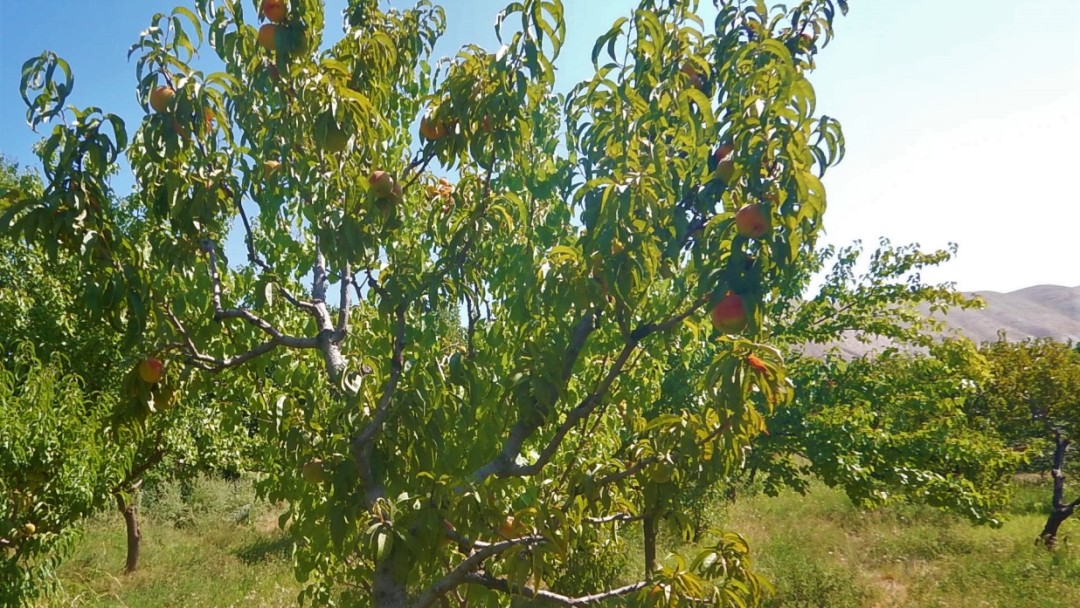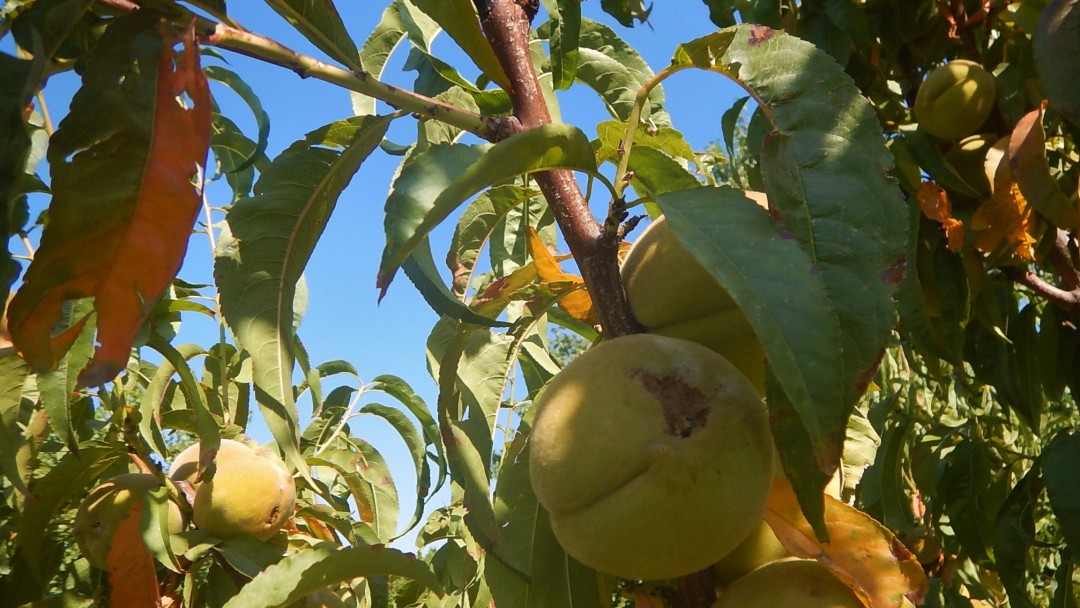News from 2019-11-26 / KfW Development Bank
Armenia introduces agricultural insurance
To protect against weather risks and encourage more productive farming

Armenia is at the dawn of a new era. The country has recently introduced agricultural insurance to protect poor small farmers against weather and climate risks, thereby helping to make them economically more successful. Farmers in six regions can now take out insurance policies to protect them from hail, frost and fire. More will follow.
Armenia depends on agriculture, which means the country suffers when there are deficits. Almost a quarter of the gross domestic product and nearly a third of export revenues come from the agricultural sector. Some 35% of all workers in Armenia make their living in agriculture. However, nearly all of them are small subsistence and family farms, almost none of which have savings. Even small crop failures often lead directly to hardship.
It is also usually difficult for them to make urgently needed investments on their own. In addition, very few farmers can protect themselves against weather events such as hail or frost, although sometimes even simple nets and films are sufficient to achieve significant results. This applies particularly to sensitive crops such as fruit, ranging from grapes to cherries, apricots and berries.
Danger from hail, frost and drought
The situation is further exacerbated by climate change, with temperatures in Armenia forecast to rise by around 2.2 degrees by 2030. Rainfall will become more volatile, dry periods and droughts more frequent. But hail and frost also pose major risks for Armenian agriculture. They often destroy the entire harvest of a whole region and cause damage worth millions.
For all these reasons, agriculture in Armenia is much less productive than its natural conditions should otherwise make it. Despite its strong fertility, the country even has to import food – indeed, twice as much as it exports on average.

This is something the government wants to change. In its most recent strategy paper, it again emphasises that agriculture is of the “utmost importance for the further development of Armenia”. For this reason it decided a few years ago to develop agricultural insurance products with the support of KfW and to subsidise the insurance premiums. The government hopes that this will not only bring more stable earnings for small farmers who receive compensation from their insurance policies in the event of storms, but will also improve their credit standing. This will enable small farmers to invest in their farms through loans and modernise Armenian agriculture as a whole.
On behalf of the German Federal Government, KfW Development Bank supports Armenia with expertise and grants because the still underdeveloped insurance market there would not be in a position to offer appropriate products on its own. The recipient of the funds is the government of Armenia, which contributes its own funds to bolster the market.
Kick-off in selected regions
The sale of the first policies recently got underway. Products are now available in six regions of the country to protect grape and apricot growing from hail, spring frost and fires. The insurance is aimed at low-income households with independent farms. In the medium term, insurance policies will be offered throughout the entire country, including for other crops.
The project is part of the InsuResilience initiative, which was launched in 2015 under the German G7 presidency. It aims to provide around 400 million people in developing countries with better insurance cover against climate and weather risks.
In Armenia itself, the launch of the first agricultural insurance scheme is seen as an important step towards more efficient, smarter and more productive agriculture. “This really marks the dawn of a new era here,” says KfW project manager Martina Koch.

Share page
To share the content of this page with your network, click on one of the icons below.
Note on data protection: When you share content, your personal data is transferred to the selected network.
Data protection
Alternatively, you can also copy the short link: https://www.kfw-entwicklungsbank.de/s/enzBWrMC.CHRA
Copy link Link copied